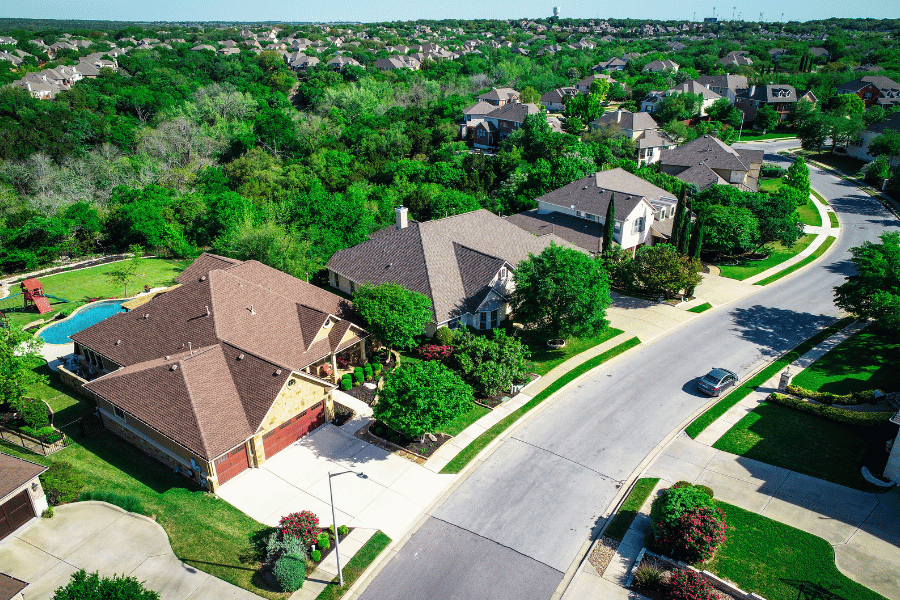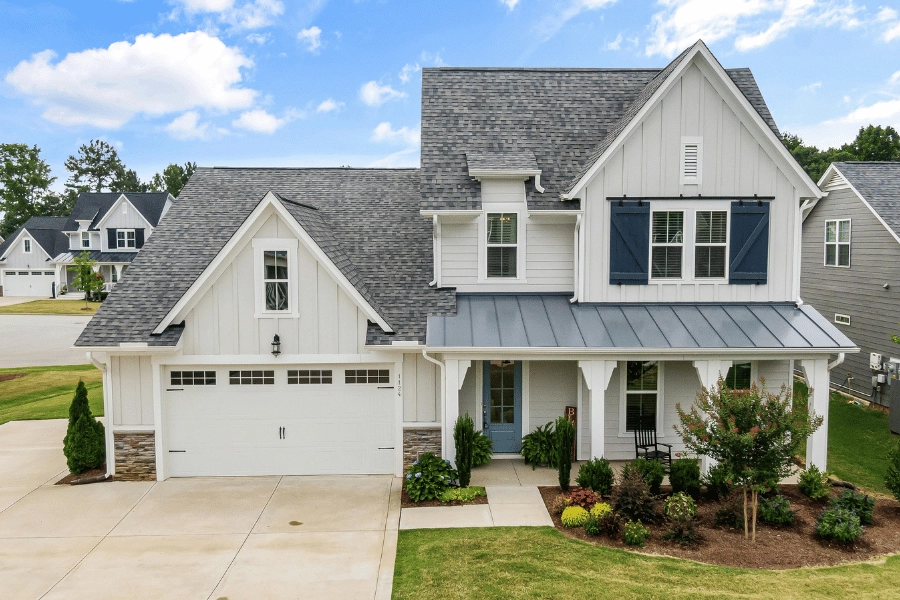Urban vs Suburban Living in NC: Pros and Cons
Are you moving to North Carolina and are conflicted about where to live? North Carolina has many amazing cities and suburbs; here are the pros and cons of urban and suburban living in North Carolina.
When deciding where to move to next, it can be hard to decide between city and suburban living. North Carolina is full of many amazing cities and towns, both of which have their own pros and cons. To make the best decision, you should be aware of everything about your options.
The main cities in North Carolina include Raleigh, Charlotte, Durham, Winston-Salem, Greensboro, and Wilmington. Each has its own pros and cons, similar to life in South Carolina, plus many amazing suburbs around it. Suburban towns are great options for people who want easy access to city amenities but don't want to live in the middle of a city.
Whether you are looking for a place to live for your family, a job market, or retirement, North Carolina is the place to look. However, as we said before, there is a lot to think about and many common mistakes when moving to a new area. You must ensure that you are prepared with all the important information.
Buying a home is a significant investment that will be both enjoyable and overwhelming. The home-buying process is unique and not one-size-fits-all. It is worth noting that homes in the major cities are often sold for prices well above the asking price, meaning suburban living may be the better option for some home-buyers. No matter your budget or lifestyle, make sure you understand the pros and cons of urban and suburban living.
Keep reading to learn all about the pros and cons of urban and suburban living in North Carolina.
1. Pros of Urban Living in North Carolina
Living in any city will have its pros in comparison to living outside the city. Check out these advantages of city living in North Carolina to learn if it is best for you.
1. Job Opportunites
The number one pro of living in a city is the job opportunities. North Carolina's economy is growing steadily, and most of the major cities have low unemployment rates and good job growth.
North Carolina is home to 13 Fortune 500 company headquarters and dozens of facilities from the Fortune 500 list. This includes Bank of America, Nucor, Duke Energy, Lowe's Companies, and Sonic Automotive. Additionally, each city is flourishing in different job sectors. For example, Raleigh was ranked No. 1 in STEM (science, technology, engineering, and math), and Charlotte is ranked high in the banking sector.
2. Recreation Options
Cities across the country have plenty of fun things to do, no matter what you like to do. Cities in North Carolina are no different. Each one has something fun to do throughout the year. For example, Raleigh is known for its parks, museums, and restaurants. Charlotte is known as the home of the NFL's Panthers, the NBA's Hornets, and the NASCAR culture. You certainly won't be bored if you live in any of the cities in NC.

2. Cons of Urban Living in North Carolina
While knowing the advantages of city living is important, understanding the cons is just as important. It is always better to be over-prepared when moving to a new area.
1. Traffic
Traffic will always be a problem when living in the city. However, most cities do have better public transportation and are known to be more walkable than suburban towns, and you'll still need to be aware of how bad the traffic is.
Many North Carolina cities are becoming more populated, meaning more cars and more traffic. Commuting from areas around the city is a good idea, but with the influx of people, commute times are growing longer. This is vital to think about when deciding where to move to in NC.
2. Higher Cost of Living
NC is full of many expensive cities, and this depends on your lifestyle, budget, location, and family size. However, you can expect to spend much more time living in a city than outside a city.
North Carolina is known to be more affordable than other states across the country. Raleigh's cost of living is 4% lower than the national average, and this includes housing, utilities, groceries, and transportation. Fuquay-Varina, a town about 30 minutes from Raleigh, has a cost of living that is 7% lower than the national average.

3. Pros of Suburban Living in North Carolina
Suburban living is great for many types of people, including families, retirees, and even young adults. You may want to live in the suburbs for some peace and quiet or lower living costs; here are the pros of suburban living in North Carolina.
1. Space
One of the main advantages of living in the suburbs is more space. Not only does this mean larger homes, but you will undoubtedly have more yard space. Square footage tends to be limited in and around a city center. A city is typically crowded with people, homes, businesses, and apartment buildings.
Living in the suburbs makes it easier to spread out with renovations and home additions. If you are a new or growing family, living in the suburbs may be the better option for you. These larger homes are also more likely to be more affordable than ones in the city.
This also applies to things to do in suburban areas. There will be more outdoor space and recreation options. You'll have easier access to these outdoor spaces, no matter if you are looking for activities for the kids or yourself.
2. Less Crime
It is no secret that crime rates are lower in suburban towns in comparison to major cities. This is mainly due to the amount of people in the area and the city itself. Safety should be a primary concern, especially for families.
However, Raleigh is still known as a safe place to live. According to the City of Raleigh Crime Rates, the violent crime rate in Raleigh is lower than the national average, although the property crime rate is higher than the national average.
One of the suburban towns around Raleigh, Holly Springs is known to be extremely safe. It was actually rated as the No. 2 safest town in North Carolina as of 2023 due to the low violent and property crime rates.

4. Cons of Suburban Living in North Carolina
Now that you know the advantages, here are the cons of suburban living in North Carolina.
1. Commuting
Many people move to the suburbs for affordable homes, better neighborhoods, and overall safety. However, many also still work in the city. This can be difficult for some who have long commute times. While many of the suburbs around the main cities in North Carolina are somewhat close, North Carolina is not known for its public transportation.
Most residents drive to work, and this car dependency can be difficult and financially taxing. Unfortunately, North Carolina is known to have noticeable problems in rural payment conditions and traffic congestion on urban interstates. This will impact your day to day life and is very important to keep in mind.
2. Social Isolation
Limited access to amenities can lead to social isolation in the suburbs. While North Carolinians are known to be kind and welcoming, it can be hard for some people to find their place. This especially relates to young professionals or recent college graduates.
It can be more difficult to find people your own age and fewer opportunities for social interactions. Luckily, the suburbs still give you access to the city where you can go in and find people your own age. However, it will be more work and with commute times it can be difficult to be in the city often.

5. Where to Live in North Carolina
Moving to North Carolina is a popular decision. The state has exploded with growth, particularly in the Triangle region, which includes Raleigh, Durham, and Chapel Hill. When deciding between city and suburban living in North Carolina, you'll have plenty of choices.
Some folks are looking for areas like the hustle and bustle of Inside the Beltline home, while others want the peace and quiet of a small town. No matter what you are looking for, you are already on a good track with North Carolina. This is a tough decision, ensure you are aware of all the pros and cons before you decide where to live.

Methodology
We used information and data from several different sources, as well as our own data, to determine everything you need to know about the pros and cons of urban and suburban living in NC. Most of the data was sourced from the following sources:
- The Charlotte Observer
- USA Facts
- WRAL
- Wake County
- PayScale
FAQ: Pros and Cons of Urban and Suburban Living in North Carolina
Here are some commonly asked questions about the pros and cons of urban and suburban living in North Carolina.
What are the cons of a suburban city?
Suburban cities and towns are great options for those who want to live outside of a major city with easy access to the city amenities. The main cons are long commute times, dependency on cars, and limited amenities and services. This will all depend on where you live and the proximity to the city.
What is the best area to live in North Carolina?
Raleigh was named the top place to live in North Carolina by the Charlotte Observer. It was also one of the 25 best cities in America, the best cities to raise a family, and the best public schools in the country, according to Niche.
What is the safest area in North Carolina to live?
North Carolina is full of many safe areas to live in; the top safest cities in NC include Cary, Davidson, Boone, Apex, and Wake Forest.
What is an advantage to living in an urban area?
Living in an urban area typically gives you improved public transport, a mix of cultures, job opportunities, and easy access to amenities. These are the top reasons people move into cities.
Is crime higher in urban areas?
According to USAFacts, the rate of violent victimization in urban areas was 24.5 victimizations per 1,000 people. This is more than double the rural area rate of 11.1. This varies depending on where you live, so it is a great idea to research the area you are moving to before living there.
Pros and Cons of Urban and Suburban Living in NC - The Bottom Line
North Carolina, as a whole, is amazing. However, it still has its own pros and cons, just like any state. Luckily, the benefits of living in NC heavily outweigh the cons. Location is extremely important, and a great location can change an entire neighborhood.
While deciding where to move, consider making a list of your must-haves and nice-to-haves. This applies to the home itself but also the location. Ask yourself, do you want to be near local amenities, your job, or schools? All of these factors will come into play when deciding between urban and suburban living. Think about your lifestyle and how your new home will affect it.
Before you buy your next home in North Carolina, feel free to contact one of our helpful real estate specialists, as they are eager to help you find the perfect home. We know that buying a home can be overwhelming, but a real estate agent can walk you through the entire process.




